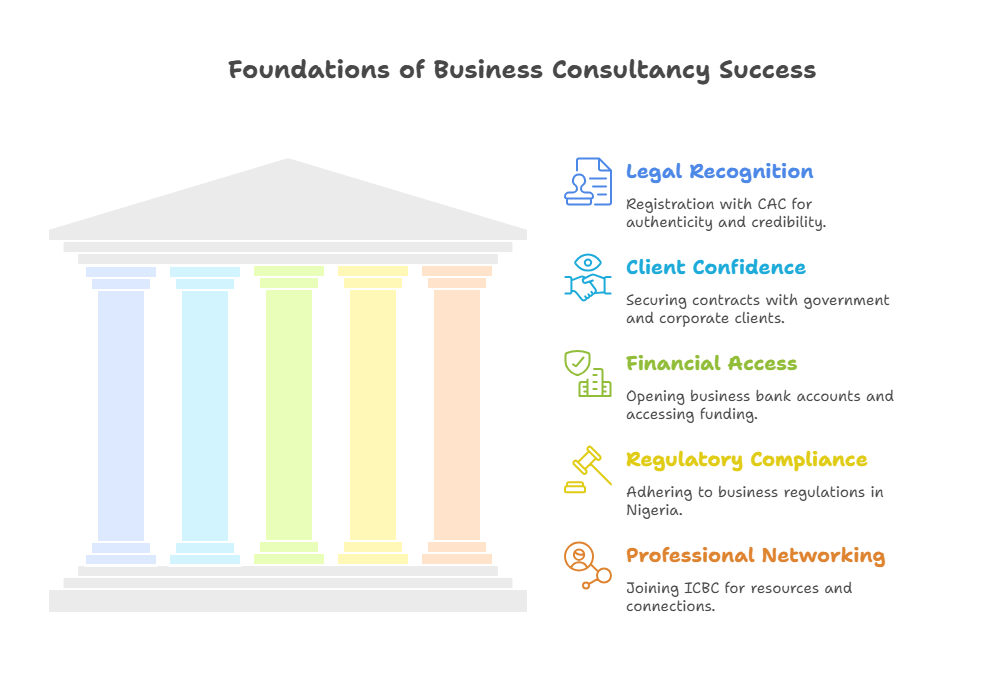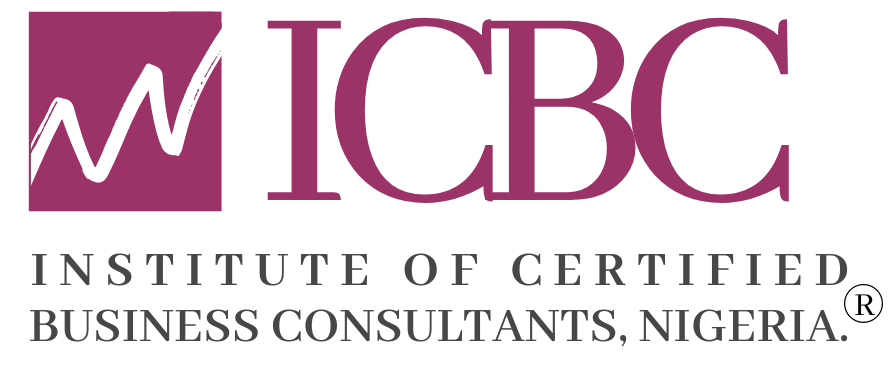Table of Contents:
- Introduction to Business Consultancy in Nigeria
- Registering a Consulting Company in Nigeria
- Corporate Affairs Commission (CAC) Registration
- Types of Consulting Companies
- Licenses and Permits
- Business Licenses
- Visa and Work Permit Requirements
- Regulatory Compliance
- Companies and Allied Matters Act (CAMA)
- Tax Obligations
- Social Security Contributions
- Role of Legal Consultancy and Company Secretarial Services
- Tips for Success
- Conclusion
- FAQ
how to start business consultancy in Nigeria: A Complete Guide
Is it true that Nigeria presents a fertile ground for those with expertise to share? The Nigerian consultancy industry is expanding rapidly. It gives firms together with individuals chances to supply expert knowledge in fields for instance management, information technology, finance or education. However, to establish a consultancy that achieves business goals, you’ll need more than just specialized knowledge – you must also register and comply with Nigerian regulations.
Introduction to Business Consultancy in Nigeria
Nigeria’s advisory industry has fast growth. So, it brings possibilities to provide dedicated knowledge in fields such as IT, management or even finance. Establishing a consultancy that gets good results means more than skill – it calls for proper registration moreover compliance with laws in Nigeria.
Registering a Consulting Company in Nigeria
Corporate Affairs Commission (CAC) Registration
- Business Name Reservation – The initial action involves reserving a distinctive name with the Corporate Affairs Commission (CAC). It makes certain that your selected name is available or not in use by another entity.
- Company Registration – If the name has approval, then you go ahead to register the business. This action involves sending the paperwork required. The memorandum also articles of association are required, as is paying registration fees.
- Minimum Share Capital – For consultancy firms, the minimum share capital sums up to N2 million in respect to individuals, or N5 million as far as corporate organizations are concerned.
Types of Consulting Companies
- Private Limited Company (Ltd) – Most advisory firms will pick this. It offers limited liability protection. It is appropriate for Nigerian moreover foreign investors.
- Free Trade Zones – In terms of foreign consultants, Nigeria offers some free trade zones in locations where one hundred percent of foreign ownership is allowed with tax compensations along with exemptions coming from several local regulations.
Licenses and Permits
Business Licenses
- General Business License – When it comes to advisory services, there isn’t a specific license for this field. However, registering with the Corporate Affairs Commission (CAC) remains a necessity for legal acknowledgment.
- Sector-Specific Licenses – Based on the type of advisory you do for example finance or IT, other licenses are needed. They originate from relevant regulatory institutions.
Visa and Work Permit Requirements
To operate lawfully in Nigeria, foreign consultants should get a Business Permit perhaps an Expatriate Quota, as well as a Temporary Work Permit (TWP) maybe a Combined Expatriate Residence Permit, as well as Aliens Card (CERPAC).
Regulatory Compliance
Companies and Allied Matters Act (CAMA)
The CAMA, revised in 2020, represents the major law overseeing corporate actions in Nigeria. It defines requirements for business registration, governance, as well as compliance.
Tax Obligations
- Corporate Tax – Firms need to settle corporate tax with respect to their revenues.
- Value Added Tax (VAT) – VAT applies to particular consulting firm offerings.
- Double Taxation Treaties – Nigeria signed deals with many countries in order to dodge double taxation. This benefits foreign consultants.
Social Security Contributions
Consultants should make input to the National Social Insurance Trust Fund (NSITF), that deals with unemployment benefits, pensions, including health benefits.
Role of Legal Consultancy and Company Secretarial Services
Legal consultancy along with company secretarial offerings remain important for making sure of obedience to Nigeria’s complex regulatory environment. These offerings assist firms with dealing with legal rules. They also support good governance or dodging legal risks.
Tips for Success
- Legal Recognition – Registration with the Corporate Affairs Commission (CAC) is needed for authenticity, as well as credibility.
- Client Confidence – Registered businesses are very apt to get contracts, whether with government or corporate clients.
- Access to Financial Services – Registration helps you open a business bank account, together with accessing funding chances.
- Compliance with Regulations – Legal compliance maintains faithfulness to regulations overseeing business functioning throughout Nigeria.
- Join the Institute of Certified Business Consultants to enhance your professional credibility, gain access to valuable business resources, and connect with a network of certified professionals that can support your business growth and development.

Conclusion
In this article we have explored starting a business consultancy in Nigeria which calls for deliberate planning including compliance, with legal regulations. Through realizing the registration procedure, acquiring the permits needed or even ensuring regulatory obedience, you will be able to put together an advisory firm, that thrives in Nigeria. Utilizing legal consultancy or company secretarial offerings is another good move. In this way, you develop your business’ legal location and operating competence. Using the proper strategy, your advisory has a shot at growing in Nigeria’s expanding business sector.
FAQ
Why is CAC registration so important?
Registration with the CAC gives your consultancy legal recognition, which is crucial for building trust with clients and accessing financial services.
What is the minimum share capital required for a consulting company?
The minimum share capital is N2 million for individuals, also N5 million for corporate entities.
Do foreign consultants need special permits to work in Nigeria?
Yes, foreign consultants need a Business Permit or Expatriate Quota, along with a Temporary Work Permit (TWP) or Combined Expatriate Residence Permit as well as Aliens Card (CERPAC).
Resources & References:
- https://www.legal500.com/developments/thought-leadership/the-checklists-of-regulatory-compliance-required-of-a-registered-business-entity-company-in-nigeria/
- https://cacregistration.com/how-to-register-a-consulting-company-in-nigeria/
- https://umbrex.com/resources/how-to-set-up-a-legal-entity-for-an-independent-consultant/how-to-set-up-a-legal-entity-for-an-independent-consultant-in-nigeria/
- https://marblepartnerslp.com/2024/09/09/the-role-of-legal-consultancy-and-company-secretarial-services-in-ensuring-corporate-compliance-in-nigeria/
- https://www.nigeria-company.com/en/business-advice/consulting/licence/

